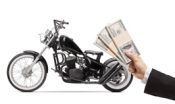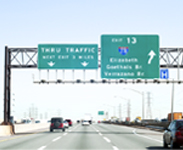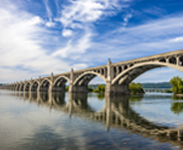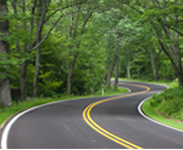Motorcycle Helmet Laws and Rules in New Jersey
The State of New Jersey has motorcycle helmet laws in place to help protect riders from serious injury if they are involved in an accident–just as insurance on motorcycles provides financial protection for the rider in case of an accident or other covered loss. For some riders, it may seem to be controversial that the government should require helmets and have rules around them. Statistics show that you are 29 times more likely to die in a motorcycle accident than in a car accident and helmets do save lives.
What Does New Jersey Consider A Motorcycle?
There are many different types of motorcycles on the roadways these days. According to NJ law, the classification of motorcycles includes motorcycles, autocycles, motorbikes, bicycles with an attached motor, and all other motor-operated vehicles of bicycle or tricycle (trike) type, but not motorized bicycles. In New Jersey, a motorized bicycle, or MOPED, is defined by law as a pedal bicycle with a helper motor that has a maximum piston displacement of less than 50 cubic centimeters, or no more than 1.5 brake horsepower, and is capable of a maximum speed of no more than 25 miles per hour on a flat surface. All of these types of motorcycles and MOPEDs need to be licensed, registered, and insured.
Do You Have to Wear a Motorcycle Helmet in New Jersey?
All NJ motorcyclists are required to wear a helmet and so are their passengers. There are several different types of helmets available, but the helmet must be DOT approved to be compliant with the law. This simply means that the helmet went through rigorous testing to make certain that it is safe and will protect your head in a crash. Approved helmets also give you better vision on either side and have a chin or neck strap to keep it in place. It should also have reflective material on the helmet so drivers can see you better in the dark.
NJ motorcyclists are required to wear approved goggles or a face shield when operating a motorcycle, unless the motorcycle is equipped with a windscreen. You can choose a full-face helmet to protect your eyes and your face, or a three-quarter helmet, which is an open-faced helmet with the addition of a snap-on bubble visor, or a face shield that flips down or with goggles for eye protection. If you use a three-quarter helmet, the bottom of your face remains exposed even with the visor or shield flipped down. You may also choose a half helmet, which provides the lowest level of protection and requires the use of sunglasses or goggles for eye protection.
Does NJ Have a Motorcycle Helmet Law?
NJ does have a motorcycle helmet law for all riders and motorcycle passengers. You also need eye protection, unless you have a full-face helmet or a three-quarter helmet with a visor. There is a helmet law in New Jersey for every type of bike, trike, scooter, motorbike, or motorcycle that has a motor on it. The helmet law was enacted in 1968 in New Jersey and there are no exemptions in place for age, experience, or for taking an approved safety course.
Do You Need a Helmet to Ride a Scooter?
You do need a helmet to ride a scooter in New Jersey. Scooters are available in many different sizes, weights, and sizes of engines as well. Additionally, low-speed motorcycles or scooters, with a top speed of 35 miles an hour, can only be operated on roadways that have a speed limit posted at 35 MPH or lower. Heavier scooters will have a lower top speed because of the weight.
This article has been provided for informational purposes only and is based on the most reliable information available on the date of publication.





